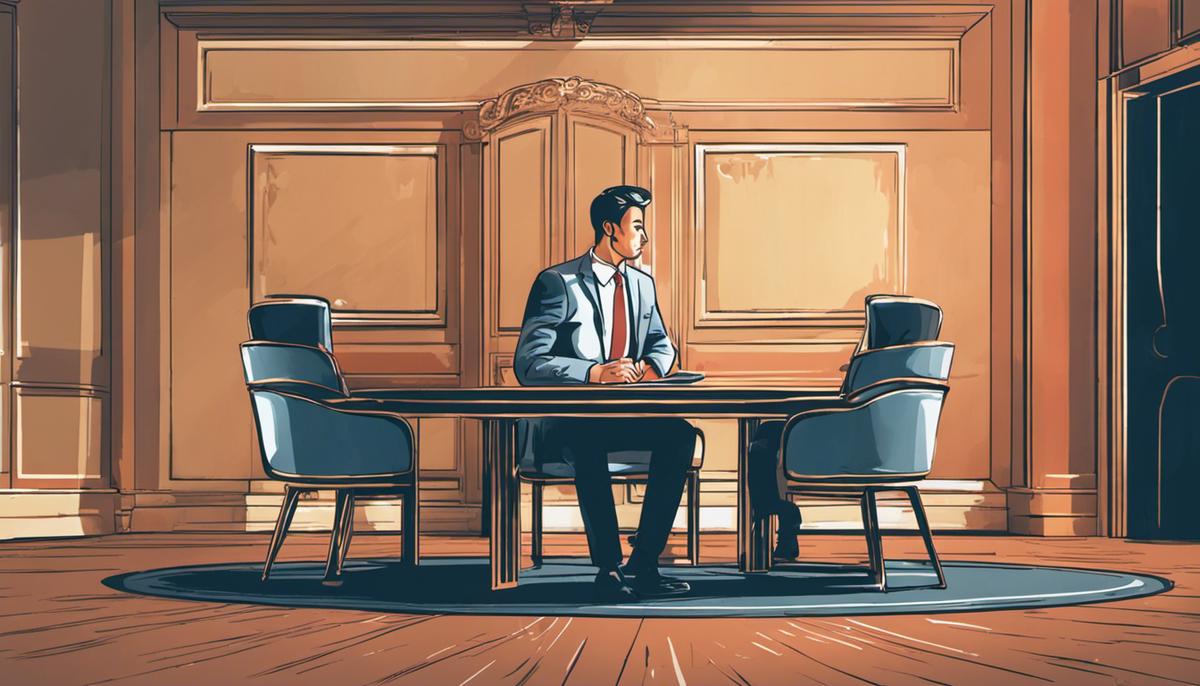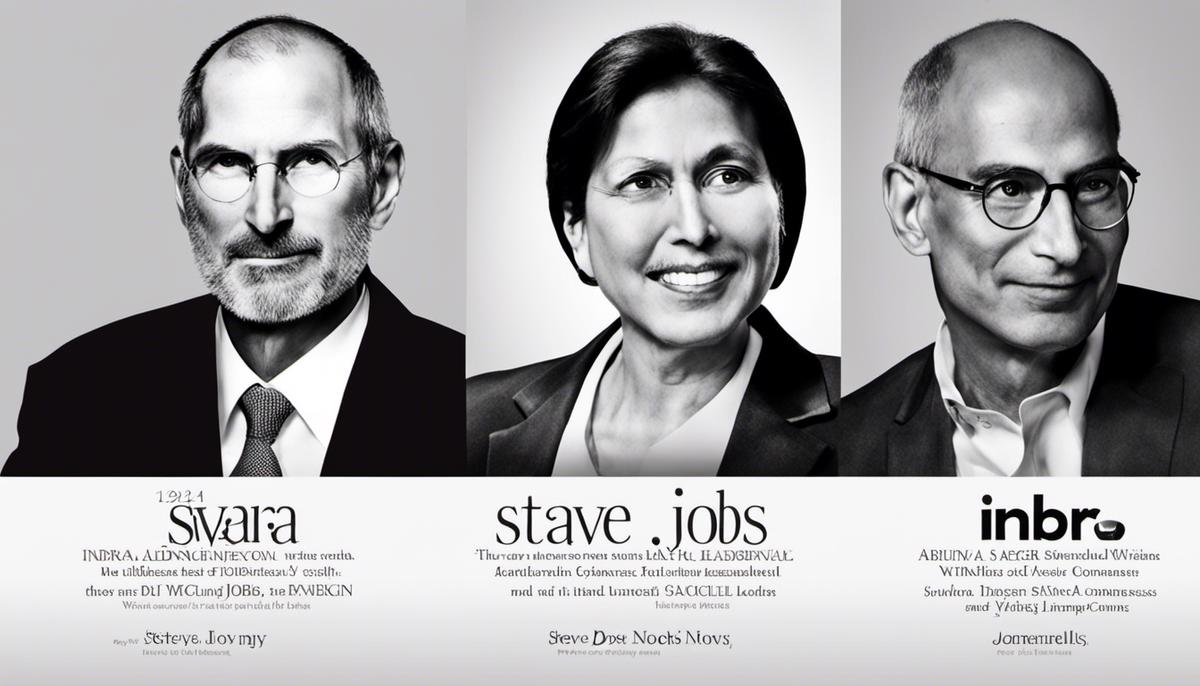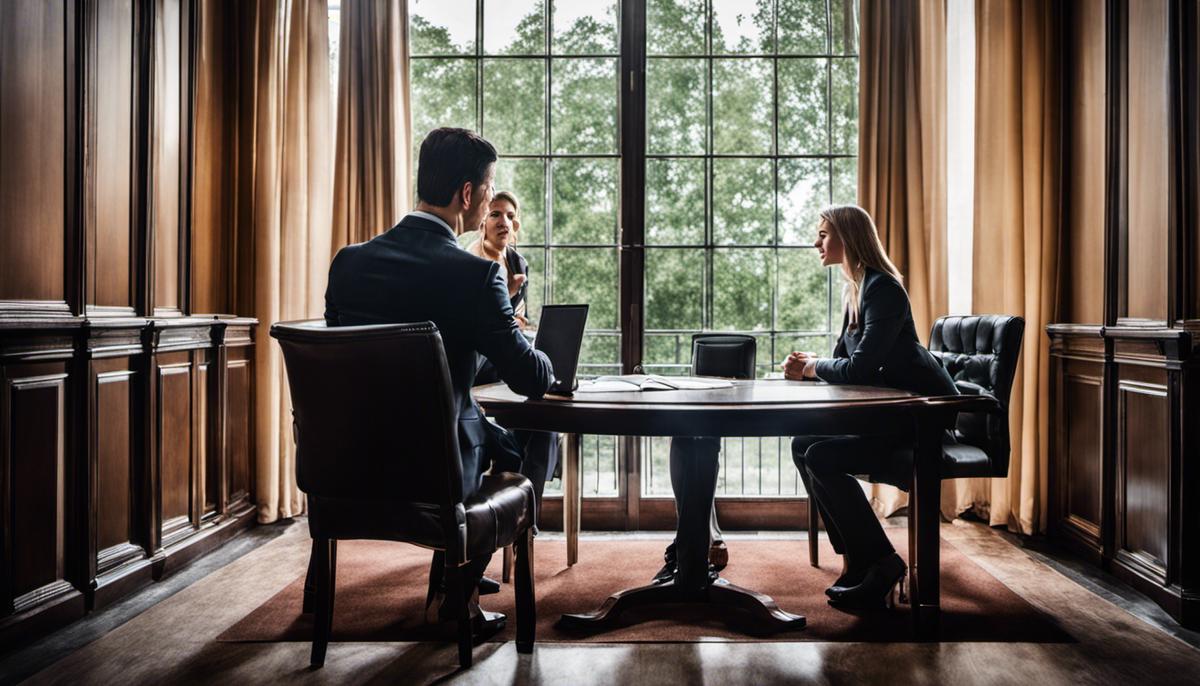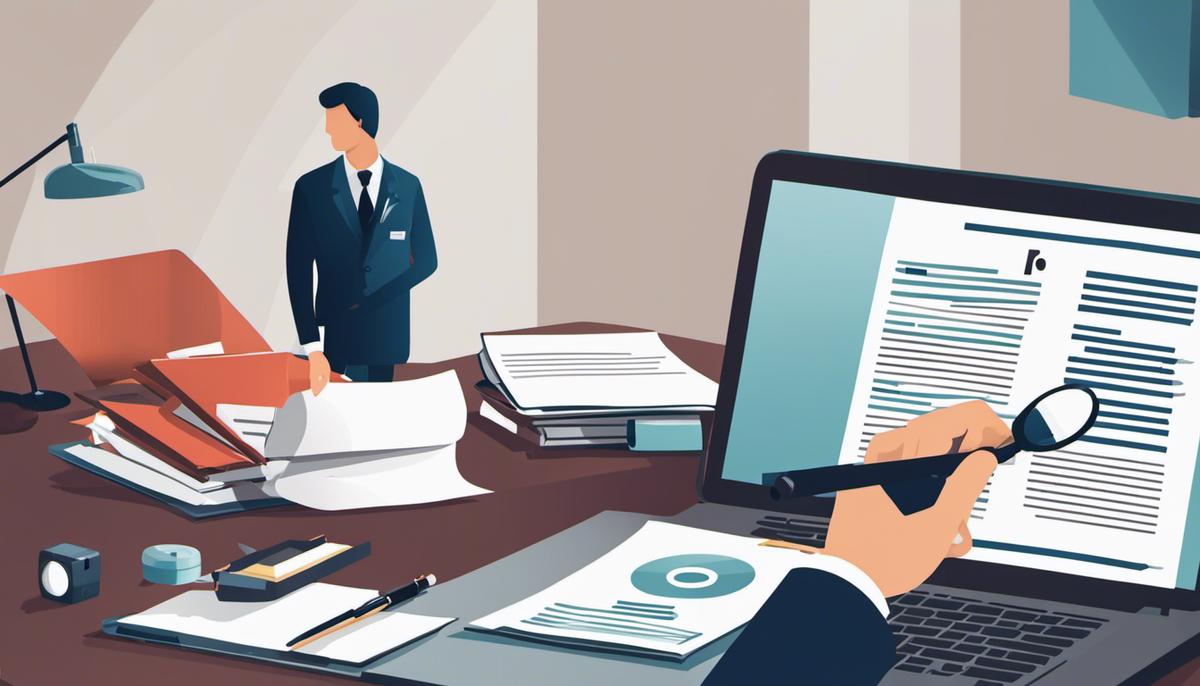As a professional aiming to ascend into a leadership role, one of the most critical aspects to master is the art of handling leadership interview questions. This mastery does not simply rely on knowing the answers, but understanding why these questions are asked and how to frame your responses to best demonstrate your leadership skills. In this discourse, we’ll explore the realm of leadership interviews, taking a journey from comprehending the nature of these questions to creating immaculate responses. We’ll walk through real-world examples and have a delve into mock interview exercises. Lastly, we’ll discuss the value of self-reflection and the continuous improvement of your interview skills.
Understanding Leadership Interview Questions
Understanding Leadership Role Interview Questions
At the core of any effective organization is strong leadership. To identify qualified leaders, interviewers often use a set of carefully curated leadership interview questions. These questions are strategically designed to assess key traits such as decision-making ability, strategic thinking, interpersonal skills, influence, resilience, and vision.
Common Leadership Interview Questions
- How would you describe your leadership style?
- Can you give an example of a goal you reached and how you achieved it?
- Can you describe a situation where you improved a process or performance?
- Describe a situation where your team disagreed with your decisions. How did you handle it?
- How do you handle stress and pressure?
- Can you describe an instance when you failed as a leader and what you learned from it?
Significance of Leadership Interview Questions
These questions are significant as they provide insight into how a candidate approaches leadership. Information gleaned from the responses can give an indication of how well the respondent will fit into the organization’s culture, handle crises, guide their team towards shared objectives, and contribute to overall organizational success.
Rationale Behind Leadership Interview Questions
The rationale behind leadership interview questions is to assess a potential leader’s capability to fulfill various objectives. These questions are aimed at gauging a candidate’s:
- Problem-solving skills: Leadership often requires making tough decisions and problem-solving under pressure. Questions about past experiences are a common way for interviewers to understand a candidate’s decision-making ability.
- Communication skills: Leaders need to be able to communicate effectively with their teams, peers, superiors, and stakeholders. Questions about interpersonal skills and past team interactions can be particularly insightful.
- Vision and Strategy: Understanding a leader’s vision and strategic thinking skills is also crucial. Questions about past achievements or how one would handle hypothetical situations can shed light on these abilities.
- Resilience: Leadership usually comes with its fair share of setbacks. Queries about past failures and bouncing back from them can help interviewers understand a candidate’s resilience level.
- Motivation: Leaders need to inspire their teams. Questions about how a candidate has motivated team members in the past can provide an understanding of their leadership abilities within their teams.
Mastering leadership role interview questions is a significant step towards guaranteeing the success of an aspirant professional. With good preparation and a concrete understanding of the framework, these questions enable a candidate to emphasize their managerial skills and credibility through detailed illustrations of prior experiences and competencies.

Formulating Impeccable Responses
Diving Deep into Leadership Role Interview Questions
These questions are designed to gauge an individual’s aptitude in guiding teams, managing projects, and optimizing resources. Companies scrutinize a candidate’s capacity for problem-solving, their communication fluency, decision-making approach, and their knack for encouraging and driving teams towards achieving desired goals. Typical leadership interview questions vary from situational to behavioral aspects. Examples include, “Could you elaborate on an instance where your leadership was crucial?”, “How do you navigate team management during high-stress periods?”, or “Could you describe a scenario where your leadership made a substantial positive influence?”
What Recruiters Generally Seek In Potential Leaders
Recruiters scrutinize candidates for various critical leadership traits. Key qualities include strong decision-making skills, which highlight a potential leader’s ability to make tough decisions in challenging situations. Good communication skills are another vital aspect, as a potential leader will need to effectively communicate project goals, instructions, feedback, and changes to their team. Recruiters also look for candidates who can inspire or motivate their team, effectively manage resources, and devise and implement viable strategies.
Dedication to the profession or industry, innovation, flexibility, adaptability, integrity, and resilience are other sought-after traits in potential leaders. Recruiters will also appreciate candidates who can demonstrate their commitment to the company’s vision, mission, and values.
Common Pitfalls to Avoid When Responding to Leadership Interview Questions
A common pitfall in responding to leadership interview questions is providing vague, non-specific responses. Candidates should avoid generalities and be focused, using concrete examples from their professional experience to substantiate their claims. Overconfidence can also be detrimental. While confidence is necessary, overconfidence can come across as arrogance.
Answers that suggest a lack of empathy or inability to work harmoniously within a team are red flags. Leaders need to exhibit strong people skills. Responding to leadership questions with answers that carry a ‘lone wolf’ undertone might hint at a less cooperative or team-oriented work style.
Mastering Leadership Interview Questions
Delivering compelling answers to leadership interview questions revolves around showcasing your leadership traits that resonate with the company’s principles and objectives. Preparation that includes understanding the company’s culture can provide an edge. The STAR technique (Situation, Task, Action, Result) should serve as the blueprint of your responses. Narrate an instance where your leadership skills were put to test, elaborate on the task at hand, discuss the strategies you implemented, and elucidate on the aftermath.
For instance, when the question is about guiding a team in a difficult scenario, you could discuss your experience of steering a project under tight deadlines, defining clear targets, inspiring the team to reach those targets, and the successful completion of the project within the stipulated time and budget. This portrays several core leadership attributes such as decision-making prowess, strategic planning, ability to motivate a team, and efficient utilization of resources.
Maintaining equilibrium between discussing personal accomplishments and emphasizing team efforts is vital. While it’s necessary to exhibit your excellent leadership abilities, it’s equally significant to highlight your competency in encouraging team spirit and nurturing a cooperative work environment.

Real-world Examples
Real-World Leadership Interview Success – Steve Jobs
A paradigmatic example of a highly effective leadership interview is Steve Jobs’, who co-founded Apple Inc. Exceptionally noted for his focused and clear vision, Jobs showcased attributes that are sought after in leadership. When questioned about decision-making, Jobs stated, “It’s not a popularity contest. It’s about making the best products that really help people.” His words underlined his dedication to superior quality and consumer satisfaction rather than solely aiming for profits, setting a viable benchmark for aspiring leaders.
Prospective candidates aspiring for leadership positions can draw inspiration from Jobs by shaping and adhering to a robust vision, even amidst disagreement. Incorporating a customer-driven approach to decision-making can also be highly beneficial in leadership interviews.
Successful Leadership Interview: Indra Nooyi
Another successful leadership interview was conducted with Indra Nooyi, the former CEO of PepsiCo. Nooyi was asked about her leadership style and how she deals with failures. In response, she said, “For me, leadership is not about being in charge. It’s about taking care of those in your charge.” On failure, she stated, “First, I believe in practicing recovery. Then, I try to understand what we can learn from the failure and use it as a teaching moment.”
Candidates can learn from Nooyi by emphasizing that leadership involves considering the welfare and growth of team members, not just executing tasks and achieving goals. Recognizing and learning from failures is also a valuable perspective to bring into a leadership interview.
Successful Leadership Interview: Satya Nadella
The CEO of Microsoft, Satya Nadella, also performed well in his leadership interview. When asked about his approach to innovation, Nadella stated, “Our industry does not respect tradition. What it respects is innovation.” Thus, he stressed the importance of innovation and continuous improvement, rather than sticking to set traditions.
Candidates can learn from Nadella by showing a genuine commitment to innovation and a willingness to adapt to changes. This is an important trait to exhibit during a leadership interview as it demonstrates proactive learning and an open mindset.
The crux of successful leadership interviews lies less in providing perfect answers to questions and more in showcasing certain critical attributes, namely a strong vision, client-centric perspective, workforce empathy, resilience, and flexibility. Aspiring leaders should also demonstrate an ability to learn from setbacks and display an eagerness to drive innovation.

Mock Interview Scenarios
Steering Through Leadership Role Interview Situations: From Theory to Application
Imagine this scenario: you’re under the spotlight with a prospective employer peppering you with questions. They’re not only evaluating your qualifications but also your readiness to take on a leadership role. Such situations are typical in interviews for leadership positions, and to successfully sail through, it’s crucial to tackle each question tactfully, showcasing your leadership attributes throughout the procedure.
Fundamentally, leadership revolves around steering a team towards the accomplishing predefined objectives. It demands sound decision-making, adept problem-solving, effective communication skills, and an innate capacity to inspire others. These attributes form the bedrock on which you should structure your responses during such interviews.
Common Leadership Interview Questions: What to Expect
- “Describe a situation when you led a challenging project.”
- “How do you handle conflict within your team?”
- “Can you share an example of a time when you motivated your team?”
- “How do you delegate tasks to team members?”
- “Tell us about a time when you had to make a difficult decision. What was the outcome?”
How to Best Respond to Leadership Interview Questions
Typically, the intent behind these questions is to gauge your level of responsibility, problem-solving skills, adaptability, communication, and motivational abilities. Here’s a step-by-step guide on how to navigate these:
- Understanding the Question: It’s important to listen carefully and decipher the skill the interviewer is trying to elicit with their question.
- Structure your Response: Use the STAR method—Situation, Task, Action, Result—to structure your responses. Start by explaining the situation, then the task you were assigned, the action you took to handle it, and finally, the result of your actions.
- Showcase your Skills: Ensure your responses highlight the key leadership skills you possess. For instance, in response to a question about handling conflict, describe a situation where you effectively mediated a disagreement, demonstrating your conflict resolution skills.
- Quantify Results Where Possible: Using numbers to quantify the results of your actions can strengthen your response. For instance, if your leadership led to a certain percentage increase in sales or company growth, mention it.
- Communicate Clearly and Concisely: Avoid lengthy explanations. Ensure your responses are concise, relevant, and articulate.
Utilizing Mock Interview Scenarios: Transitioning Theory into Action
Embracing the utility of mock interviews is instrumental in honing your responses to leadership role interview questions. Reflect on instances from the past where you’ve excelled in leadership roles and formulate your responses using the STAR method. Practice your responses aloud, either in solitude or with a practice partner. This level of preparation can significantly bolster your confidence and improve your performance during the actual interview. Remember, acing the interview doesn’t only involve demonstrating your leadership skills, but also showcasing your readiness to don the leadership mantle.

Continuous Improvement and Follow-up
Recognizing the Importance of Continued Improvement and Follow-Ups in the Leadership Interview Process
The leadership interview process doesn’t end with the interview. Instead, it’s an ongoing learning opportunity where you can continuously improve. The capacity to self-evaluate, learn from errors, seek out constructive feedback, and execute effective follow-ups after the interview, distinguishes you as a proactive, perceptive leader, willing to adapt and grow.
Evaluating Your Performance
After the interview, take some time to reflect on your performance. Did you effectively communicate your skills and leadership style? Were you able to provide comprehensive and convincing answers to the interview questions? Initiating a personal assessment will help highlight your strengths and areas of improvement for future interviews.
Learning from Mistakes
Everyone makes mistakes, but what differentitates a good leader from an exceptional one is the ability to learn from their blunders. Review the questions that you found challenging during the interview. Analyze your responses and identify alternative answers that could have better showcased your leadership skills.
Seeking Constructive Feedback
Don’t be afraid to seek feedback from your interviewer, whether you are selected for the role or not. A constructive critique is an excellent tool for identifying areas that can be improved. Many interviewers are open to offering advice on areas you excelled in and where you can make improvements in your interviewing skills.
Effective Follow-Up
While it might seem like a small gesture, a timely and professional follow-up note or email can leave a lasting impression on your interviewer. Thank your interviewer for their time, reinforce your interest in the leadership role, and mention something memorable or insightful from your interview discussion in your follow-up note.
Incorporating Learnings into Future Interviews
Incorporate the lessons learned from your self-assessment, mistakes, and feedback into your future interviews. The goal of this continuous improvement and follow-up process is to enable you to communicate your leadership skills more effectively in interviews, improving your chances of securing a leadership role.
Continuous Improvement as a Leadership Skill
Remember, the process of continuous improvement and follow-up itself exemplifies an essential leadership skill – the capacity for self-reflection and adaptability. Demonstrating that you are always looking to learn and improve can significantly benefit your performance in future leadership role interviews.

The journey of professional growth as a leader doesn’t end at successfully answering the last interview question. Rather, it extends into learning from the experience, seeking feedback, and strategizing for future encounters. Navigating this post-interview phase with insight and thoughtfulness can provide you with significant advantage and unique insights for your upcoming leadership opportunities. With continuous effort to assimilate lessons and improvements from each interview scenario, you will find yourself growing not just as a potential candidate for a leadership role, but as a comprehensive leader in your own right.